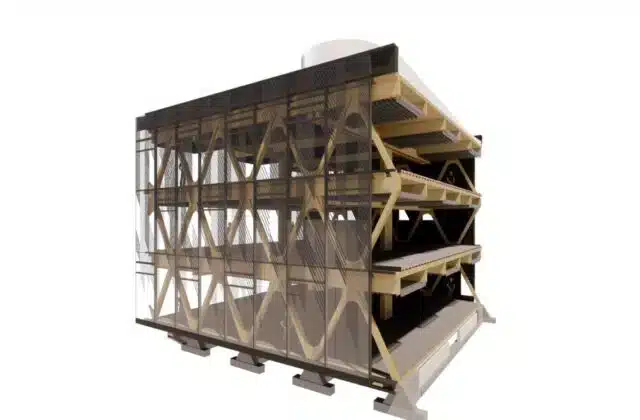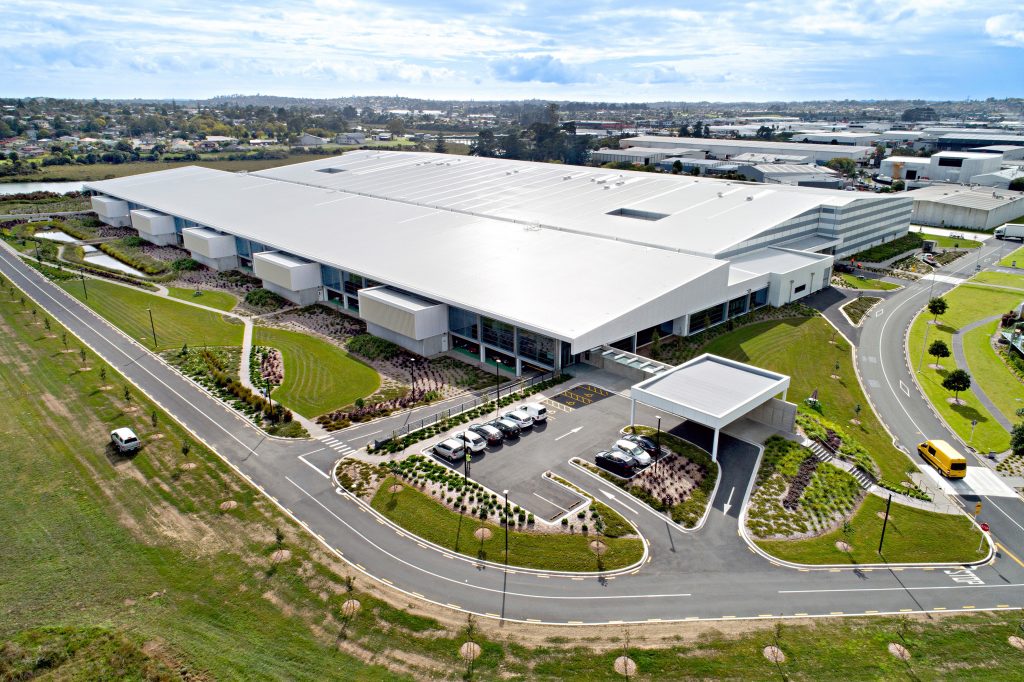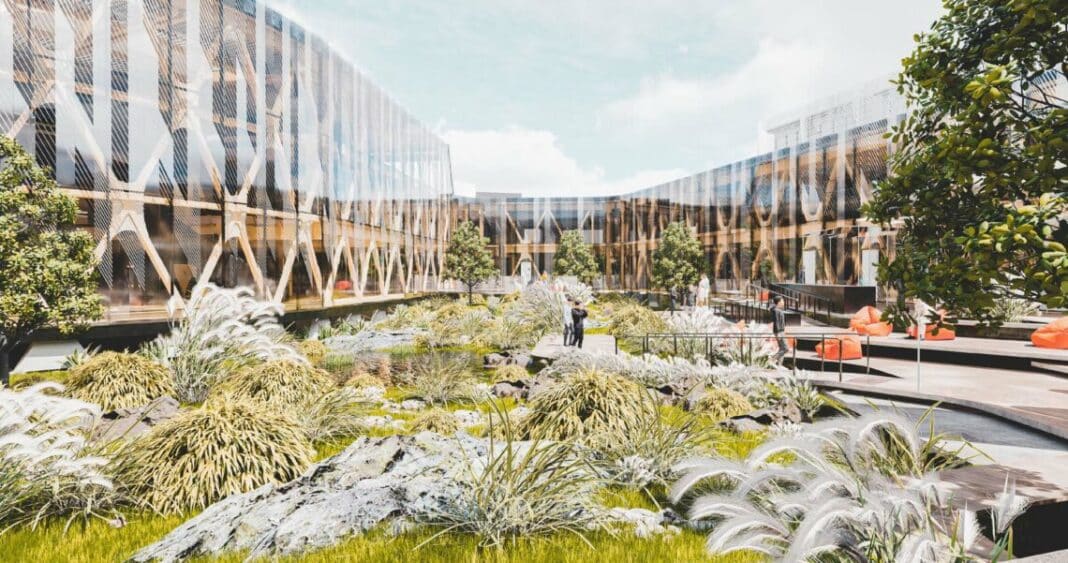Fisher & Paykel Appliances have appointed Naylor Love, one of New Zealand’s largest builders, to construct its new headquarters in East Tāmaki.
The new heart-shaped hub will become the new home for the Chinese-owned business, featuring administration, research and design, laboratories and testing facilities.
Set to be NZ’s largest mass timber project, RTA Studio has designed it and is among the favourites in the World Architecture Festival Building of the Year, set to be announced in Singapore next month.
Announced today, Naylor Love will construct two of the three buildings on campus, with Mark Elmore, Vice-Preisdent of Design and Brand, telling the NZ Herald that the builder was thrilled to be involved.
“For us, this is the next platform for Fisher & Paykel Appliances to grow globally – a purpose-built research and design facility very close to a train station,” Elmore said.

The campus, known as “Come Home to Work”, caters for 1000 workers and “will set a new global benchmark in the post-pandemic hybrid workplace model encompassing net-zero office innovation,” according to Fisher & Paykel.
Significantly, it ends its 50 year-tenancy with Fisher & Paykel Healthcare at its purpose-built campus in East Tāmaki.
RTA Studio’s masterplan for the 22,779 square-metre industrial site “aims to regenerate the land using plants that would have grown here in pre-European days – and then to weave the office and workshops in between.”
All going to the plan construction will commence later this year and be finalised in 2025.
The main office – called the ‘home’ – is a massive 3-story building constructed with a cross-laminated timber diagrid frame similar to that used at the award-winning Scion Innovation House in Rotorua.

“That’s intended to minimise embodied carbon and be efficient during the life of the building. In terms of New Zealand, it will be a pretty large-scale mass timber structure,” Mr Elmore said.
Bruno Goedeke, Naylor Love Construction’s regional manager for Auckland, Waikato and the Bay of Plenty, said the business had signed an early contractor involvement agreement.
“I’m 58, and I’ve not seen a building like this in my career,” Mr Goedeke said, referring to designs for the new hub near Fletcher Building’s base at 810 Great South Rd.
The diagrid design deployed by RTA Design has been celebrated globally for its ingenuity – with Scion Innovation House awarded by the World Architecture Festival with the 2021 WAF Building of the Year.
Earlier this year, Wood Central contributor and World Architecture Festival judge Mark Thomson spoke of the design, which shifts the focus away from gravity mass timber buildings to geometrically stiffened forms to help in earthquake conditions.
Crucially, RTA Studio engaged with Māori in developing the all-timber diagrid. “RTA Studio has engaged with local hapu, Ngāti Whātua Ōrākei, to discover and interpret the stories particular to this land,” the Studio said in a statement.
“The concept motif of the flounder (pātiki),” the Studio said, “found in nearby waters, is depicted by Māori as a diamond shape.”
“This is interpreted here in the design of the diagrid structure and in patterns on the woven ‘cloak’ that wraps around the ‘home’, shielding it from the noise and wind of a busy street frontage.”
Meanwhile, Fisher & Paykel Healthcare is also moving, planning a shift to Karaka, NZ’s largest property transaction for the year.

In May, the Herald reported that the NZ Government granted the clearance for that vast expansion via an NZ $275m land deal at Karaka.
The Overseas Investment Office released its latest decisions showing approval was granted for the company to buy 104 hectares from New Zealand business Karaka Meadows.
Clearance was needed because although Fisher & Paykel Healthcare is 34 per cent New Zealand-owned, 32 per cent is in Australian hands, 15 per cent American, 15 per cent British, and other overseas entities own the rest.
The company is part of the group, headquartered here since 1969.
“The group operates a research, development, and manufacturing campus in East Tamaki. The land is currently used primarily for pastoral purposes including grazing and horticulture – a tomato hot house business – and a lease to a refrigerated produce transport business,” the clearance decision said.






